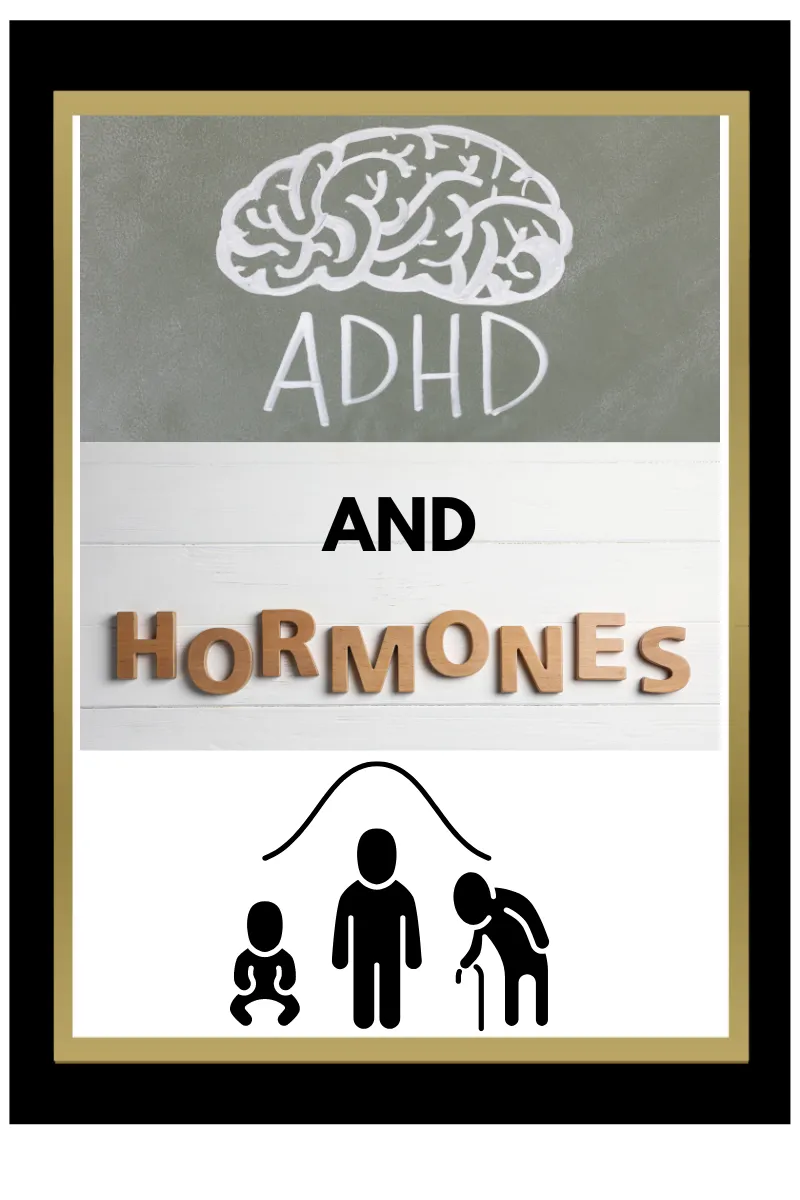Today, we are embarking on a fascinating journey into the intricate relationship between hormonal changes and ADHD symptoms throughout the lifespan. From childhood to adolescence, and through all the twists and turns of adulthood, these hormonal fluctuations can play a significant role in shaping our ADHD experience. So, buckle up, grab a cup of tea, and let’s dive into this enlightening topic!
Hormones and Childhood:
Hormonal changes during childhood may not be as drastic as those in later life stages, but they still influence the ADHD journey. The early years are marked by gradual hormonal maturation, particularly in the adrenal glands, which play a role in regulating stress responses. These hormonal fluctuations can make it challenging for children with ADHD to effectively manage their emotions, leading to increased impulsivity or erratic behavior.
Puberty and Adolescence:
Ah, puberty—the time when the hormone rollercoaster truly takes off for everyone. But for those of us with ADHD, the ups and downs can intensify our challenges. As hormonal shifts surge during adolescence, they can significantly impact neurotransmitter activity, such as dopamine and norepinephrine, involved in regulating attention and focus. This hormonal surge can exacerbate existing ADHD symptoms or sometimes even reveal new ones.

During this transitional phase, we may experience heightened emotional sensitivity, impulsivity, and difficulty maintaining focus. Navigating academics and social interactions become more intricate tasks, demanding extra support and understanding from our loved ones and educational environments.
Hormonal Changes in Adulthood:
As we bid adieu to adolescence (thankfully, for some of us!), our hormonal landscape continues to evolve. For women with ADHD, additional hormonal fluctuations, such as those associated with the menstrual cycle, pregnancy, or menopause, can sometimes lead to changes in symptom severity.
For instance, many women report a spike in ADHD symptoms during the premenstrual phase, often referred to as “late luteal exacerbations.” This is due to fluctuations in estrogen and progesterone levels, which impact neurotransmitter activity. Understanding these patterns can help us better anticipate and manage potential challenges during these specific times.
Menopause, too, brings its own set of hormonal adjustments. While research in this area is still developing, some reports indicate that the decline in estrogen levels during menopause might influence ADHD symptoms. Finding adequate support and exploration of tailored approaches to manage these changes is crucial during this life stage.
For men as well, as levels of progesterone drop, there are changes in how ADHD symptoms are experienced. In an Attitude magazine survey, nearly 75% of man reported an exacerbation of symptoms in their 40s and 50s.
Management Strategies:
Now that we are armed with knowledge about the impact of hormonal changes on ADHD symptoms, it’s time to explore some strategies to better navigate these challenges. Here are a few recommendations:

1. Mindful self-awareness: Observing and keeping track of symptoms in relation to hormonal cycles can aid in recognizing patterns and adjusting our coping mechanisms accordingly.
2. Open communication: Sharing our experiences with healthcare professionals, therapists, and loved ones can help them provide targeted support and guidance during hormone-driven fluctuations.
3. Medication adjustments: In consultation with healthcare providers, adjusting medication dosage or timing may be an option to mitigate the impact of hormonal fluctuations on ADHD symptoms.

4. Lifestyle modifications: Regular exercise, a balanced diet, stress reduction techniques (e.g., mindfulness, meditation), and maintaining a consistent sleep schedule can all contribute positively to ADHD symptom management.
As individuals with ADHD, we are on a perpetual quest for understanding and self-improvement. Recognizing the influence of hormonal changes on ADHD symptoms throughout different stages of life empowers us to adapt and implement tailored strategies. By navigating the hormone-ADHD connection with mindfulness, open communication, and professional guidance, we can strive for enhanced self-awareness and effective management of our unique ADHD journeys.
Remember, you’re not alone on this adventure. Together, we can conquer the peaks and valleys of ADHD, armed with knowledge, resilience, and a desire to be our best selves.

